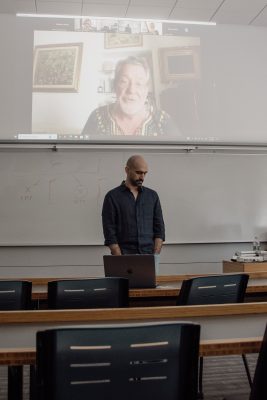The article “Phonological development in American Sign Language-signing children: Insights from pseudosign repetition tasks” by Shengyun Gu, Deborah Chen Pichler (PhD 2001, now at Gallaudet University), L. Viola Kozak and Diane Lillo-Martin has just been published online in Frontiers in Psychology. Congratulations!
The full article can be accessed here.
Abstract: In this study, we conducted a pseudosign (nonce sign) repetition task with 22 children (mean age: 6;04) acquiring American Sign Language (ASL) as a first language (L1) from deaf parents. Thirty-nine pseudosigns with varying complexity were developed and organized into eight categories depending on number of hands, number of simultaneous movement types, and number of movement sequences. Pseudosigns also varied in handshape complexity. The children’s performance on the ASL pseudosign task improved with age, displaying relatively accurate (re)production of location and orientation, but much less accurate handshape and movement, a finding in line with real sign productions for both L1 and L2 signers. Handshapes with higher complexity were correlated with lower accuracy in the handshape parameter. We found main effects of sequential and simultaneous movement combinations on overall performance. Items with no movement sequence were produced with higher overall accuracy than those with a movement sequence. Items with two simultaneous movement types or a single movement type were produced with higher overall accuracy than those with three simultaneous movement types. Finally, number of hands did not affect the overall accuracy. Remarkably, movement sequences impose processing constraints on signing children whereas complex hands (two hands) and two simultaneous movement types do not significantly lower accuracy, indicating a capacity for processing multiple simultaneous components in signs. Spoken languages, in contrast, manifest greater complexity in temporal length. Hearing children’s pseudoword repetition still displays high levels of accuracy on disyllabic words, with complexity effects affecting only longer multisyllabic words. We conclude that the pseudosign repetition task is an informative tool for studies of signing children’s phonological development and that sheds light on potential modality effects for phonological development.


